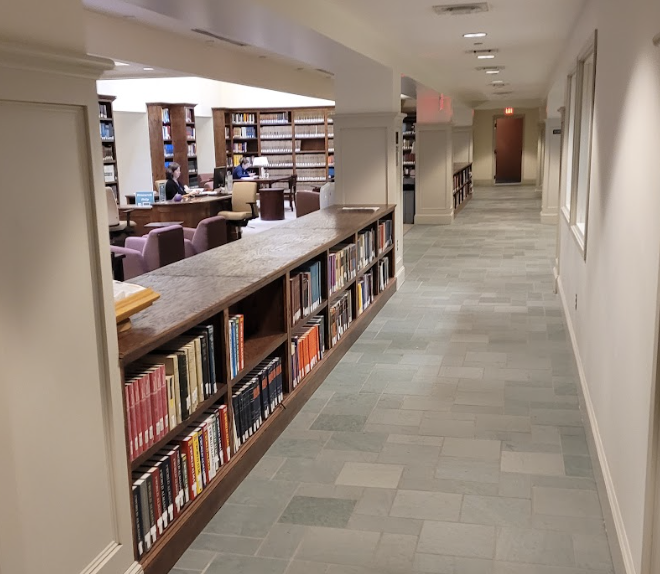Don’t believe in ghosts? I say you should
Ghosts haunt the halls of Geisel Library, lurking over students as they study and experiencing the mortal world they once knew
October 20, 2022
Ghosts are all around us, watching us, haunting us. They are found in the silent halls of libraries, the darkened corners of studies and dorm rooms, the dusty closets of your own home, and even online!
Of course, I am talking about the ghosts of great writers since passed, who live on in our mortal world through the words they wrote before their deaths. Their thoughts, ideas, opinions and advice can critique and shape our world today. Whether it be through the beautiful images conjured up by Shakespeare’s verse, or the graphic horrors of Elie Wiesel’s memoirs, literature speaks to us about our past, critiques our present, and shows us pathways to the future.
These ghosts are present at every point in our lives, whether we realize it or not. Every book, article, story, or poem we have read, no matter how small or seemingly inconsequential, has influenced us in some way. They mold our senses of humor and morality alike, while offering their own unique perspectives on lives which the mortal authors never would have experienced. Literature possesses us, in a way, by allowing the authors to see the world through our own eyes. This in turn, allows us to experience the world around us in an entirely unique way.
With the sheer amount of literature published in the thousands of years humans have been writing things down, it would be impossible to find two individuals today who have each read the exact same things throughout their lives. It would be yet more inconceivable for two individuals to have both read the same sources and had the same life experiences. This means that each individual carries within them the ghosts of authors who have been privy to innumerable different experiences.
While the likes of Thoreau and Plato may have been one mortal person, they have the experience of billions of lifetimes which cover not only the breadth of many generations, but of entire eras. Mark Twain, much like his own Connecticut Yankee, has traveled through time, and in many a reader even conversed with King Arthur himself. Kurt Vonnegut has the expanse of human experience laid out before him, just as he so vividly described in Slaughterhouse Five. Even former writers of the beloved Crier still share their stories in the musty halls of Alumni Hall.
Now that these writers have passed on from this life, it is up to us to give their ghosts the sight of our eyes and the breath of our speech. We are lucky, at Saint Anselm College, to have the space to bring these ghosts into our everyday lives. We are encouraged (and yes, also required) to study literary greats for at least part of our time here, no matter what our major is. This offers us the privilege to not only give new life to these literary ghosts, but share our experiences with one another; an incredibly vital part of the liberal arts education. So keep reading, Anselmians, you never know whose ghost you might meet next.



